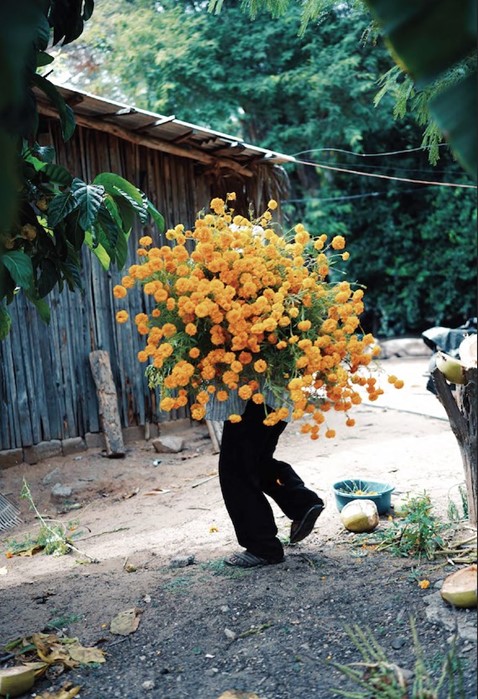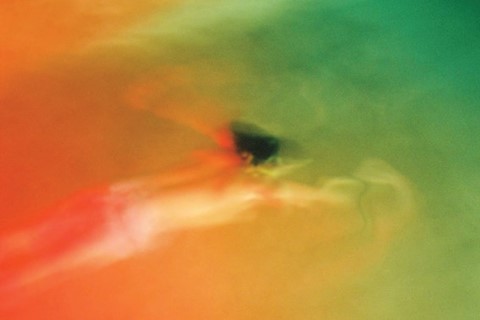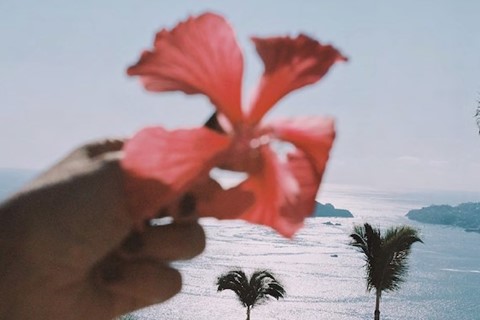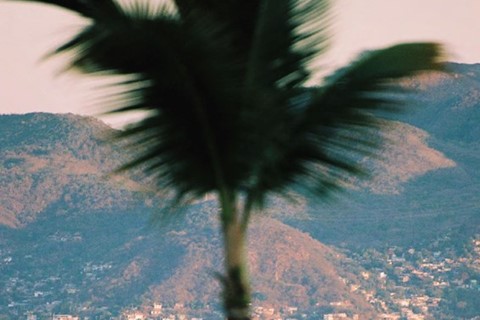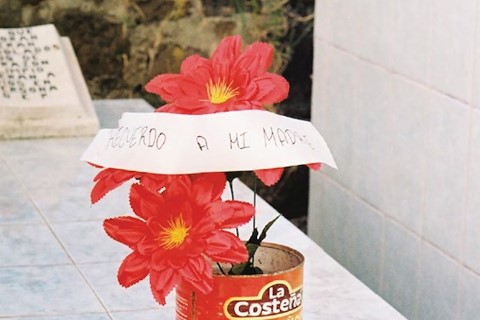Captured over the past decade, the Spanish photographer’s first monograph represents a love letter to “the country, its people, the traditions, the architecture, the colours, all the nature – the desert, the wildlife, everything”
In 2012, somewhere among Mexico City’s flower markets, Guadalupe street altars and Luis Barragan’s elegant modernism, Pia Riverola arrived in what would become her “adopted homeland”. “Mexico is the place I arrived in a moment of my life when I was very vulnerable and insecure,” the Spanish photographer says today.
Shot over the course of a decade, her debut monograph Flechazo – which translates to ‘love at first sight’ – is her tribute to the country and all the life sewn into its fabric. “The inspiration is Mexico itself as a country, its people, the traditions, the architecture, the colours, all the nature – the desert, the wildlife, everything,” she says.
Although she was given a Minolta point-and-shoot camera by her grandfather as a child, it wasn’t until moving from Barcelona to Mexico that Riverola stepped into her own as a photographer. “Mexico was the way I was focusing … I started [getting] commissioned more for magazines and had this moment when I realised, ‘Oh wow, you’re now a photographer for real’.” Currently based in LA, Riverola has since built an extensive portfolio that boasts an impressive clientele, alongside a substantial Instagram following (at the time of writing, she has 257,000 followers). Having worked for the likes of WSJ, Nike and Google, her expansive oeuvre traverses genres of fashion, architecture, still life and travel photography with remarkable poise.
The Mexico captured in Flechazo is sentimental, vibrant, and romantic. Quotidian moments carry striking emphasis, from a woman cleaning avocados with a parrot in hand to two poinsettias in a makeshift vase, using an empty jalapeño can. At the heart of her practice is a receptivity to the world and its rich multiplicity, which drives a fascination for the mundane. Aesthetically, her experimentation with colour, light and form produces shots that emulate the talent of the medium’s preceding colourists – Raghubir Singh and Joel Meyerowitz spring to mind.
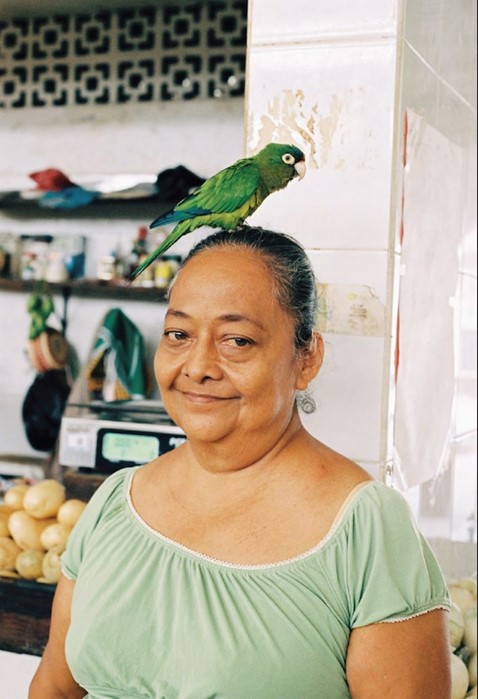
“Every photo reflects a mood I was in, what something made me feel or what I was experiencing,” says Riverola. “It’s very nostalgic. There are photos from ten years ago and they capture a moment in my life when I was discovering something or discovering myself.” In Flechazo, the evocation of Mexico reflects Riverola’s embodied relationship with an elusive world and her transient self.
A poetic intermezzo written by her partner John Reagan appears in the middle of the book, giving existential voice to the images. Punctuating the prose with delicate irony, it echoes: “a map of the states drawn in my mind, my path, my friends and strangers made unstrange. Flowers blooming and fading, discovering new paths. New hours of the day. New lights. Old shadows.” As much as the book is a passionate ode to the country, it is equally a love letter to all the stages of growth Riverola experienced while journeying through Mexico; from nomad, to lover, and eventually to motherhood.
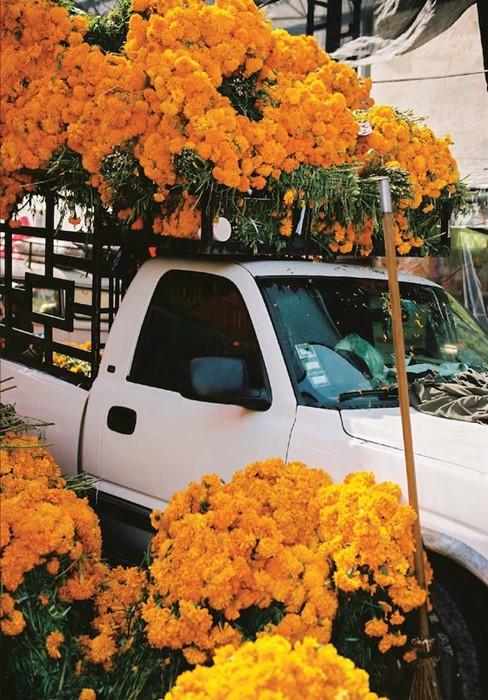
There is a distinct cinematic and musical quality to the book; hyphenated titles of Mexican cities form the chapters referencing classical movie titles, creating a storied rhythm. “It was very important to have a cinematic story, seeing the times go by, and reflecting all these different places,” she explains. Flechazo unfolds like an effervescent piece of jazz; opening shots of beaches in Mazunte and Baja croon tenderly, bringing the beat to a climax with the urban vibrance of Guadalajara and Mexico City which give way to the softer lulls and subdued tones in Ixtapa.
In almost every image there is a nod to Mexico’s ecology, particularly its flowers. Cars and cemeteries overflow with flora, a woman kneels in a yellow mess of Mexican marigolds and a sea of carmine petals envelop a group of men in the back of a pick-up truck. Elsewhere, other facets of the land are explored, from cerulean bodies of water, terracotta mountain ranges to pensive dusk skies.
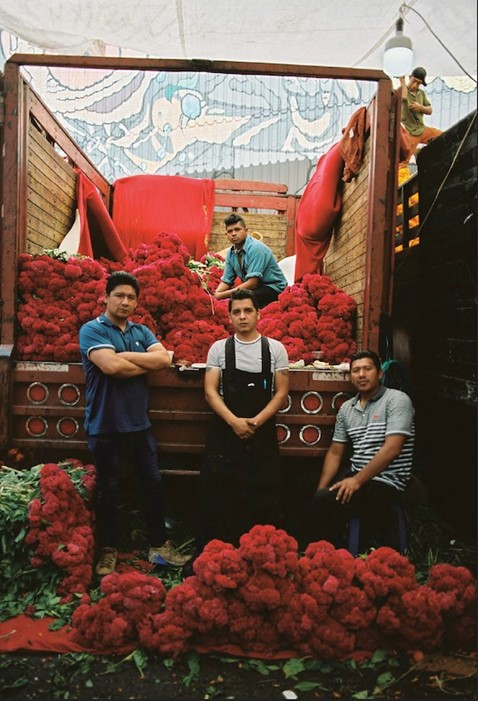
Indeed, underpinning her creative practice, says Riverola, is a commitment to protecting these precious ecosystems. “My work could not exist without nature. It’s all about cherishing and paying homage to the land,” Riverola explains with a sense of urgency. “For me, preservation is so important. I hope that when people see the book they understand how all these marvellous places are not going to exist if we keep going down the path we are on.”
Flechazo by Pia Riverola is published by Homecoming Gallery and is out now.
